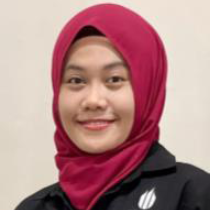International Journal of Modern Education and Computer Science (IJMECS)
IJMECS Vol. 17, No. 4, 8 Aug. 2025
Cover page and Table of Contents: PDF (size: 694KB)
Fostering EFL Pre-Service Teachers‟ TPACK through Inquiry-Based, Technology-Saturated, and Flipped Instructional Model
PDF (694KB), PP.45-57
Views: 0 Downloads: 0
Author(s)
Index Terms
Flipped classroom, INSTALL model, Inquiry-based learning, Pre-service English teachers, TPACK
Abstract
As the English language and information and communication technology (ICT) enhance global interconnection, demands on educating the young generation with English language skills and technological competence increase exponentially. As the successor of education, pre-service English teachers need to be trained with technological pedagogical content knowledge (TPACK). This study aims to develop an instructional model oriented to pre-service English teachers' (PST) TPACK. This is design-based research carried out in three stages: informed exploration, enactment, and evaluation. This study employed a multiphase mixed method. A qualitative design was done in the informed exploration stage, and an explanatory sequential mixed design was used for the evaluation stage. Nine PSTs, three lecturers, and 4 experts were invited as the participants of this study. The qualitative data were analyzed thematically on NVIVO software while the quantitative data were analyzed using descriptive statistic calculation. The results showed that the PSTs need an instructional model that facilitates student agency, learning agency, self-reliance, innovation, and cooperation. An instructional model called Inquiry-based, technology-saturated, and flipped instructional model (INSTALL) was developed. The expert validation result showed that the products of this development study were in the “Very Good” category. The results of the expert judgment indicated that INSTALL could be utilized to enhance the PSTs’ TPACK by blending inquiry-based learning and technology-saturated flipped instruction.
Cite This Paper
Maulana Mualim, Margana, Agus Widyantoro, Lu’luil Maknun, "Fostering EFL Pre-Service Teachers’ TPACK through Inquiry-Based, Technology-Saturated, and Flipped Instructional Model", International Journal of Modern Education and Computer Science(IJMECS), Vol.17, No.4, pp. 45-57, 2025. DOI:10.5815/ijmecs.2025.04.03
Reference
[1]E. Baran, S. Canbazoglu Bilici, A. Albayrak Sari, and J. Tondeur, “Investigating the impact of teacher education strategies on preservice teachers’ TPACK,” Br. J. Educ. Technol., vol. 50, no. 1, pp. 357–370, 2019.
[2]M. Mafuraga and M. Moremi, “Integrating information and communication technology in English language teaching : A case study of selected Junior Secondary schools in Botswana Mbizo Mafu,” Int. J. Educ. Dev. using Inf. Commun. Technol., vol. 13, no. 1, pp. 142–152, 2017.
[3]D. W. Ma’rufah, M. Mualim, and F. A. Hilman, “Online peer assessment in paragraph writing: Its implementation and students’ constraints,” JALT CALL J., vol. 20, no. 1, pp. 1–23, 2024.
[4]M. Altun, “The integration of technology into foreign language teaching,” Int. J. New Trends Educ. Their Implic., vol. 6, no. 1, p. 8, 2015.
[5]J. Harmer, The Practice of English Language Teaching, Third. Essex: Pearson Education Limited, 2001.
[6]D. A. Schmidt, E. Baran, A. D. Thompson, P. Mishra, M. J. Koehler, and T. S. Shin, “Technological pedagogical content knowledge (TPACK): The development and validation of an assessment instrument for preservice teachers,” J. Res. Technol. Educ., vol. 42, no. 2, pp. 123–139, 2009.
[7]M. J. Koehler and P. Mishra, “Technological pedagogical content knowledge: A framework for teacher knowledge,” Teach. Coll. Rec., vol. 108, no. 6, pp. 1017–1054, 2006.
[8]J. J. Tseng, C. S. Chai, L. Tan, and M. Park, “A critical review of research on technological pedagogical and content knowledge (TPACK) in language teaching,” Comput. Assist. Lang. Learn., vol. 35, no. 4, pp. 948–971, 2020.
[9]H. Mardiana, “Lecturers’ attitudes towards online teaching in the learning process,” Regist. J., vol. 13, no. 1, pp. 77–98, 2020.
[10]A. S. Subekti and L. A. Kurniawati, “Indonesian high school english teachers’ attitudes towards the use of instructional technology during the covid-19 pandemic,” J. Iqra’ Kaji. Ilmu Pendidik., vol. 7, no. 2, pp. 76–88, 2022.
[11]D. T. Y. G. Sumakul, F. A. Hamied, and D. Sukyadi, “Artificial intelligence in EFL classrooms: Friend or foe?,” Learn J. Lang. Educ. Acquis. Res. Netw., vol. 15, no. 1, pp. 232–256, 2022.
[12]B. Y. Cahyono, O. D. Kurnianti, and I. Mutiaraningrum, “Indonesian EFL teachers’ application of TPACK in in-service education teaching practices,” Int. J. English Lang. Teach., vol. 4, no. 5, pp. 16–30, 2016.
[13]Syamdianita and B. Y. Cahyono, “The EFL pre-service teachers’ experiences and challenges in designing teaching materials using TPACK framework,” Stud. English Lang. Educ., vol. 8, no. 2, pp. 561–577, 2021.
[14]L. Maknun, Z. Zamzani, and J. Jamilah, “Unveiling Indonesian EFL teacher’s perceptions and challenges of technology-based assessment as and for learning,” Int. J. Lang. Test., vol. 14, no. 1, pp. 82–98, 2023.
[15]S. Ammade, M. Mahmud, B. Jabu, and S. Tahmir, “Integrating technology in English language teaching: global experiences and lessons for indonesia,” Int. J. English Linguist., vol. 8, no. 6, p. 107, 2018.
[16]L. Maknun, Z. Zamzani, and J. Jamilah, “Leveraging technology-based AfL and AaL within the framework of English differentiated instruction in Indonesia,” Teach. English with Technol., vol. 24, no. 2, pp. 47–70, 2024.
[17]F. Teknowijoyo, Budiyono, Gunarhadi, and Sukarmin, “Exploring the role of TPACK in promoting inquiry-based learning in 21st -century science learning,” in The 3rd International Conference on Humanities Education, Law, and Social Science, 2024, vol. 2024, pp. 1088–1100.
[18]T. T. S. Strat and K. M. Jegstad, “Norwegian teacher educators’ reflections on inquiry-based teaching and learning in science teacher education,” J. Sci. Teacher Educ., vol. 34, no. 6, pp. 624–644, 2023.
[19]M. Loizou and K. Lee, “A flipped classroom model for inquiry-based learning in primary education context,” Res. Learn. Technol., vol. 28, no. 1063519, pp. 1–18, 2020.
[20]J. Bergmann and A. Sams, Flip your classroom: Reach every student in every class every day, 1st ed. International Society for Technology in Education, 2012.
[21]M. I. Baig and E. Yadegaridehkordi, “Flipped classroom in higher education: A systematic literature review and research challenges,” Int. J. Educ. Technol. High. Educ., vol. 20, no. 61, pp. 1–26, 2023.
[22]B. Trilling and C. Fadel, 21st century skills: Learning for life in our times. San Francisco: John Wiley & Sons, 2009.
[23]C. D. Jerald, Defining a 21st century education. The Center for Public Education, 2009.
[24]K. Kay and V. Greenhill, “Twenty-first century students need 21st century skills,” in Bringing schools into the 21st century, 13th ed., G. Wan and D. M. Gut, Eds. Dordrecht: Springer, 2011, pp. 41–65.
[25]K. Kereluik, P. Mishra, C. Fahnoe, and L. Terry, “What knowledge is of most worth: teacher knowledge for 21st century learning,” J. Digit. Learn. Teach. Educ., vol. 29, no. 4, pp. 127–140, 2013.
[26]D. Suherdi, “English for 21st century Indonesia,” in Proceeding of EDUTICON (English Education International Conference), Nov. 2015, pp. 1–9.
[27]T. J. Kopcha, A. Ottenbreit-Leftwich, J. Jung, and D. Baser, “Examining the TPACK framework through the convergent and discriminant validity of two measures,” Comput. Educ., vol. 78, pp. 87–96, 2014.
[28]L. Brantley-Dias and P. A. Ertmer, “Goldilocks and TPACK: Is the construct ‘just right?,’” J. Res. Technol. Educ., vol. 46, no. 2, pp. 103–128, 2013.
[29]G. Sang, J. Tondeur, C. S. Chai, and Y. Dong, “Validation and profile of Chinese pre-service teachers’ technological pedagogical content knowledge scale,” Asia-Pacific J. Teach. Educ., vol. 44, no. 1, pp. 49–65, 2016.
[30]K. Özgen and S. Narlı, “Intelligent data analysis of interactions and relationships among technological pedagogical content knowledge constructs via rough set analysis,” Contemp. Educ. Technol., vol. 11, no. 1, pp. 77–98, 2020.
[31]M. A. Paidican and P. A. Arredondo, “The technological-pedagogical knowledge for in-service teachers in primary education: A systematic literature review,” Contemp. Educ. Technol., vol. 14, no. 3, pp. 1–15, 2022.
[32]J. Dostál, Inquiry-based instruction: Concept, essence, importance and contribution. Olomouc: Palacky University, 2015.
[33]T. Bell, D. Urhahne, S. Schanze, and R. Ploetzner, “Collaborative inquiry learning: Models, tools, and challenges,” Int. J. Sci. Educ., vol. 32, no. 3, pp. 349–377, 2010.
[34]M. Pedaste et al., “Phases of inquiry-based learning: Definitions and the inquiry cycle,” Educ. Res. Rev., vol. 14, pp. 47–61, 2015.
[35]B. K. Khalaf and Z. B. M. Zin, “Traditional and inquiry-based learning pedagogy: A systematic critical review,” Int. J. Instr., vol. 11, no. 4, pp. 545–564, 2018.
[36]L. Deslauriers, L. S. McCarty, K. Miller, K. Callaghan, and G. Kestin, “Measuring actual learning versus feeling of learning in response to being actively engaged in the classroom,” Proc. Natl. Acad. Sci. U. S. A., vol. 116, no. 39, pp. 19251–19257, 2019.
[37]G. Maguiño, S. L. Romero Vela, R. A. Rengifo Lozano, and G. F. Garcia Mendocilla, “Technology in the educational process: New scenario,” Rev. Venez. Gerenc., vol. 25, no. 92, pp. 1809–1823, 2020.
[38]P. Turiman, K. Osman, and T. Wook, “Inventive thinking 21st century skills among preparatory course science students,” Asia Pacific J. Educ. Educ., vol. 35, no. 2, pp. 145–170, 2020.
[39]World Economic Forum, “New Vision for Education : Fostering Social and Emotional Learning Through Technology,”, 2016. [Online]. Available: https://www3.weforum.org/docs/WEF_New_Vision_for_Education.pdf
[40]D. H. Brown, “Principles of language learning and teaching,” 15th ed., New York: Longman, 2007.
[41]I. El Dandachi, S. El Nemar, and H. El-Chaarani, “XR and the Metaverse: New Opportunities in Education,” in How the Metaverse Will Reshape Business and Sustainability. Contributions to Environmental Sciences & Innovative Business Technology., R. El Khoury and B. Alareeni, Eds. Singapore: Springer, 2023, pp. 51–61.
[42]V. Russell, “An examination of flipped learning in foreign and second language instructional contexts,” Online J. Int. Educ., vol. 3, no. 1, pp. 35–60, 2018.
[43]Higher Education Academy, “Flipped learning,” 2015. [Online]. Available: www.heacademy.ac.uk/knowledge-hub/flipped-learning-0. [Accessed: 25-May-2023].
[44]F. Widyasari, M. Masykuri, L. Mahardiani, S. Saputro, and S. Yamtinah, “Measuring the effect of subject-specific pedagogy on TPACK through flipped learning in e-learning classroom,” Int. J. Instr., vol. 15, no. 3, pp. 1007–1030, 2022.
[45]N. Foldnes, “The flipped classroom and cooperative learning: Evidence from a randomised experiment,” Act. Learn. High. Educ., vol. 17, no. 1, pp. 39–49, 2016.
[46]P. Strelan, A. Osborn, and E. Palmer, “The flipped classroom: A meta-analysis of effects on student performance across disciplines and education levels,” Educ. Res. Rev., vol. 30, p. 100314, 2020.
[47]J. P. Vitta and A. H. Al-Hoorie, “The flipped classroom in second language learning: A meta-analysis,” Lang. Teach. Res., vol. 27, no. 5, pp. 1268–1292, 2023.
[48]Z. Xu and Y. Shi, “Application of constructivist theory in flipped classroom-take college English teaching as a case study,” Theory Pract. Lang. Stud., vol. 8, no. 7, pp. 880–887, 2018.
[49]A. Lachner, I. Backfisch, and K. Stürmer, “A test-based approach of modeling and measuring technological pedagogical knowledge,” Comput. Educ., vol. 142, p. 103645, 2019.
[50]P. H. Cheng, J. Molina, M. C. Lin, H. H. Liu, and C. Y. Chang, “A new TPACK training model for tackling the ongoing challenges of COVID-19,” Appl. Syst. Innov., vol. 5, no. 2, pp. 1–19, 2022.
[51]P. Chaipidech, N. Srisawasdi, T. Kajornmanee, and K. Chaipah, “A personalized learning system-supported professional training model for teachers’ TPACK development,” Comput. Educ. Artif. Intell., vol. 3, no. February, pp. 1–10, 2022.
[52]S. Zhang and A. Zhou, “The construction and practice of a TPACK development training model for novice university teachers,” Sustain., vol. 15, no. 15, pp. 1–11, 2023.
[53]B. Bannan, “The integrative learning design framework: An illustrated example from the domain of instructional technology,” in An Introduction to Educational Design Research, T. Plomp and N. Nieveen, Eds. Enschede, the Netherland: SLO, 2009, pp. 53–71.
[54]B. Bannan-Ritland, “The role of design in research: The integrative learning design framework,” Educ. Res., vol. 32, no. 1, pp. 21–24, 2003.
[55]E. Baumgartner et al., “Design-based research: An emerging paradigm for educational inquiry,” Educ. Res., vol. 32, no. 1, pp. 5–8, 2003.
[56]S. McKenney and T. C. Reeves, Conducting Educational Design Research, vol. 50, no. 3. New York: Routledge, 2012.
[57]T. Hutchinson and A. Waters, English for Specific Purposes: A Learning-Centered Approach. Cambridge: Cambridge university press, 1987.
[58]V. Braun and V. Clarke, “Applied qualitative research in psychology,” Qual. Res. Psychol., vol. 3, no. 2, pp. 77–101, 2006.
[59]P. Escalante Arauz, “Inquiry-based learning in an english as a foreign language class: A proposal,” Rev. Lenguas Mod., vol. 0, no. 19, pp. 5–9, 2013.
[60]A. Abdi, “The effect of inquiry-based learning method on students’ academic achievement in science course,” Univers. J. Educ. Res., vol. 2, no. 1, pp. 37–41, 2014.
[61]J. H. Nunaki, I. Damopolii, N. Y. Kandowangko, and E. Nusantari, “The effectiveness of inquiry-based learning to train the students’ metacognitive skills based on gender differences,” Int. J. Instr., vol. 12, no. 2, pp. 505–516, 2019.
[62]J.-L. Shih, C.-W. Chuang, and G.-J. Hwang, “An inquiry-based mobile learning approach to enhancing social science learning effectiveness,” J. Educ. Technol. Soc., vol. 13, no. 4, pp. 50–62, 2010.
[63]G. R. Sekhar, “Teaching soft skills: a necessity in modern era,” Res. J. English Lang. Lit., vol. 7, no. 1, pp. 1–9, 2019.
[64]J. Vincent and J. Granito, "...involve me and I learn,” in The Teaching of Psychology in Autobiography: Perspectives from Exemplary Psychology Teachers (Volume 5), R. Bubb, J. Stowell, and W. Buskist, Eds. Society for the Teaching of Psychology, 2014, pp. 59–64.
[65]A. Lachner et al., “Fostering pre-service teachers’ technological pedagogical content knowledge (TPACK): A quasi-experimental field study,” Comput. Educ., vol. 174, p. 104304, 2021.
[66]A. Piotrowski and S. Witte, “Flipped learning and TPACK construction in English education,” Int. J. Technol. Teach. Learn., vol. 12, no. 1, pp. 33–46, 2016.
[67]H.-T. Hung, “Design-based research: Redesign of an English language course using a flipped classroom approach,” TESOL Q., vol. 51, no. 1, pp. 180–192, 2017.
[68]R. Bezzazi, “Learning English grammar through flipped learning,” Asian J. Appl. Linguist., vol. 6, no. 2, pp. 170–184, 2019.
[69]G. Lee and A. Wallace, “Flipped learning in the English as a foreign language classroom: Outcomes and perceptions,” TESOL Q., vol. 52, no. 1, pp. 62–84, 2018.
[70]N. Kadıoglu and O. O. Oskay, “The effect of preparing lesson plans in online flipped learning model on pre-service teachers’ self-efficacy levels of TPACK,” MIER J. Educ. Stud. Trends Pract., vol. 13, no. 1, pp. 147–169, 2023.
[71]F. Ghaemi and S. J. G. Mirsaeed, “The impact of inquiry-based learning approach on critical thinking skill of EFL students,” EFL J., vol. 2, no. 2, pp. 89–102, 2017.
[72]Y. Irawan, S. Syahrial, and D. Sofyan, “The effect of using inquiry based learning strategy on students speaking ability: A case study at SMAN 7 bengkulu selatan,” JOALL (Journal Appl. Linguist. Lit., vol. 3, no. 2, pp. 59–79, 2019.
[73]I. Irham and S. D. Jayanti, “Inquiry-based learning for students’ speaking skill improvement: voices and realities from the ground,” J. English Acad. Specif. Purp., vol. 3, no. 2, pp. 82–91, 2020.
[74]S. S. Wahono and I. H. N. Zahro, “Using inquiry based learning to improve students speaking skills,” J. Lang. Intell. Cult., vol. 3, no. 2, pp. 125–138, 2021.
[75]F. Sari and I. Wati, “Enhancing students’ reading ability through inquiry based learning to EFL students,” English Community J., vol. 1, no. 1, pp. 60–64, 2017.
[76]A. Wahab and T. Terasne, “The effect of inquiry-based learning on students’ critical thinking in reading,” Jo-ELT (Journal English Lang. Teaching) Fak. Pendidik. Bhs. Seni Prodi Pendidik. Bhs. Ingg. IKIP, vol. 7, no. 1, pp. 26–30, 2020.
[77]M. Hudri and I. Irwandi, “Implementing inquiry-based learning strategy to improve the secondary students’ descriptive writing ability,” Linguist. ELT J., vol. 7, no. 2, pp. 26–44, 2019.
[78]S. Tavanapour and A. Chalak, “Impact of inquiry learning method on the grammatical accuracy of Iranian EFL learners’ writing,” Int. J. Res. English Educ., vol. 6, no. 3, pp. 86–95, 2021.



